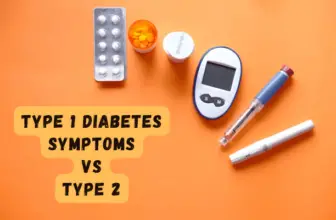Does Coffee Raise Your Blood Sugar Level?

Coffee is an integral part of our everyday lives. Whether to give the body a caffeine boost in the morning or enjoy an ice-cold brew after a long, hard day, we all drink coffee every day. Around a third of the American population drinks caffeinated beverages, and almost 53% drink at least a cup of coffee daily. But does coffee raise your blood sugar level?
Diabetes has gradually become the most common disease in the United States. We believe it’s about time we discussed the effects of coffee on diabetes and blood sugar. The statistics show that over half of Americans consume coffee regularly. Research also shows that regular coffee consumption does not affect healthy adults’ blood sugar levels. But it can affect blood sugar levels if you have existing diabetes.
This article discussed the relationship between blood sugar and caffeine and what we should do about it. Keep reading this article to learn more about coffee and its relationship with diabetes.
What Happens When You Drink Coffee While Having Diabetes?
If you have diabetes, you should lower caffeine consumption because caffeine can affect blood sugar levels. Caffeine interferes with insulin production and can badly affect insulin sensitivity which can cause damage to the health of people with diabetes. A diabetic might find their blood sugar levels fluctuating after consuming coffee. He or she will only feel this effect if they drink around 200 milligrams of coffee in one day.
But on the other hand, if you don’t have diabetes but are consuming a well-regulated below 400 milligrams of coffee daily, you will benefit from it. If you don’t already have diabetes, drinking coffee daily may help you avoid it and its symptoms.
How Does Coffee Affect Diabetes?
Even though regular coffee consumption can benefit a healthy person’s health, it may harm people with type 2 diabetes. Drinking coffee when you have type 2 diabetes can cause fluctuations in glucose and insulin levels.
When someone drinks caffeine, it raises stress hormone levels in the body. This release of stress hormones prevents glucose absorption into the cells to produce energy. When your body stops absorbing blood sugar, you become insulin resistant. And when someone becomes resistant to insulin, they become diabetic.
Caffeine consumption while diabetic can also prevent the absorption of a protein called adenosine. Adenosine is the protein that helps the pancreas produce insulin. When your body can’t process adenosine, your system fails to produce proper insulin, which can cause your blood sugar to rise.
Another health risk associated with the consumption of coffee while diabetic stems from the primary reason we drink coffee: to stay awake. When we don’t sleep, it hinders the body’s natural healing process and reduces insulin sensitivity.
What are the Benefits of Caffeine Consumption?
Here we have summarized some of the health benefits that caffeine can offer you. If you’re a healthy adult, then your health can enjoy the following benefits:
- More energy: Caffeine increases energy and keeps you wide awake. Caffeine boosts our energy by blocking the neurotransmitting receptor adenosine. This protein boosts neurotransmitters in the brain, which regulate the levels of energy one has.
- Reduces risk of type 2 diabetes: Even though you shouldn’t drink too much coffee while diabetic, it can help to lower the risk of having type 2 diabetes. A study found that every cup of coffee a person consumes daily lowers their risk of type 2 diabetes by around 6%.
- Improves brain health: Medical studies have shown that drinking coffee daily makes us less likely to develop Parkinson’s disease. The studies also showed that when we drink coffee daily, we have a lesser risk of Parkinson’s disease than those who don’t. A different study showed that the more people drank coffee, the lower their risk of having Alzheimer’s disease.
- Weight reduction: Research shows that regular coffee consumption can help reduce weight. A review of 12 studies found that caffeine consumption was linked to reduced fat. Another study showed that people who drink two cups of coffee always meet the required physical activity.
- Support cardiovascular health: Drinking coffee every day can also help to improve your cardiovascular health. A study found that if someone drank three cups of coffee every day, they were 15% less likely to have heart problems. A different study has also shown that drinking coffee regularly can reduce the risk of stroke by up to 21%.
What are the Health Risks of Coffee?
Now we will explore the damage that consuming too much coffee can do to the health of a normal human. The negative effects of drinking too much coffee are as follows:
- Causing anxiety: Drinking too much coffee can cause anxiety. Coffee blocks the chemical that makes people feel tired and releases adrenaline.
- Can lead to insomnia: The reason we drink coffee in the first place is to keep us awake. One study shows that drinking too much coffee can gradually reduce sleep time. But if we consume more caffeine than we should, it can ‘prevent sleep’ for a long time.
- Digestive health problems: Many here have difficulty doing their ‘business’ in the morning without having a cup of coffee first. Coffee makes ‘dropping the load’ easier because coffee releases gastrin in our system. Gastrin is a hormone our stomach produces to help us ‘release’ better. Because of its laxative effects, drinking too much of it can cause stomach problems. A study showed that coffee can cause gastroesophageal reflux in people who drink too much.
- Elevated blood pressure: coffee can cause your blood pressure to rise significantly. Many studies have shown that because of the stimulating effect of caffeine, our blood pressure rises significantly when we drink it. Increased blood pressure increases the possibility of having heart attacks and strokes.
- Increased heartbeat: Coffee’s stimulating effects not only raise blood pressure but also our heart rates. Drinking too much coffee can even alter your heart’s normal rhythm, known as fibrillation. This condition is also common in people who drink too many energy drinks.
Summary
Someone with diabetes should always refrain from drinking too much. Even though it is relatively healthy for healthy adults to drink coffee regularly in moderation, the same cannot be said about people living with diabetes. When someone drinks coffee despite being diabetic, they risk increasing insulin resistance and lowering insulin production.
So, to sum it up, we can say that the term ‘moderation is key’ comes into play when discussing diabetes and caffeine consumption. People with type 2 diabetes should only consume around 250 milligrams of coffee and no more than that if they need it. But it is wise to stop caffeine consumption when someone is diagnosed with diabetes.
ALSO READ: Type 1 and Type 2 Diabetes Differences






